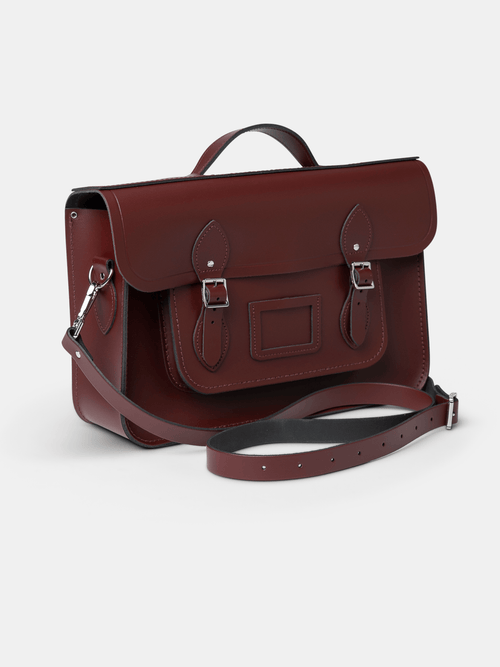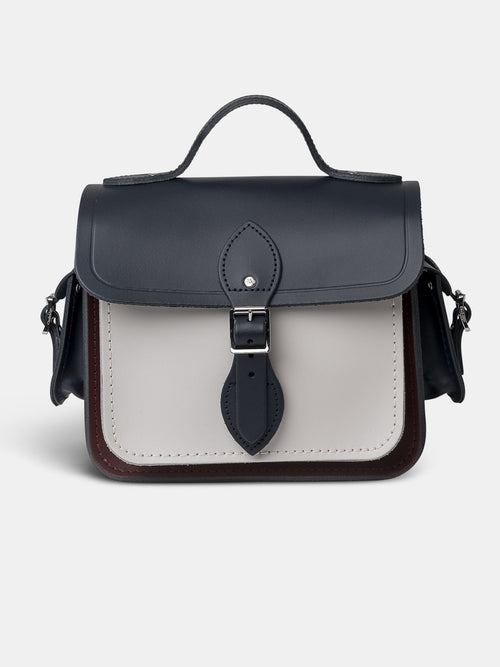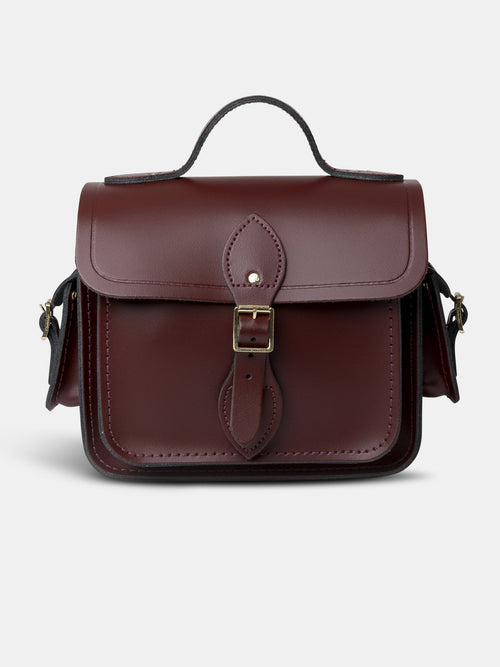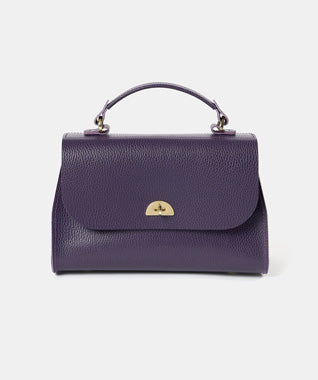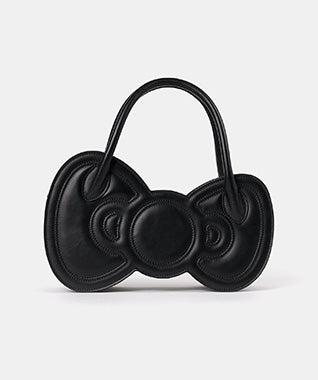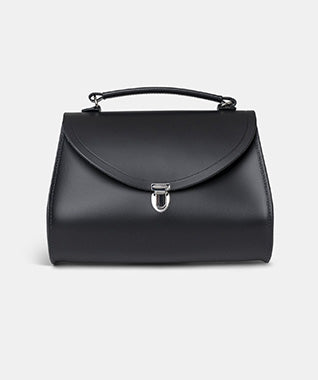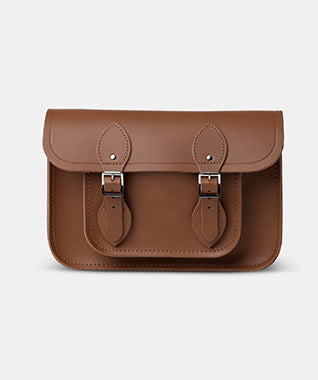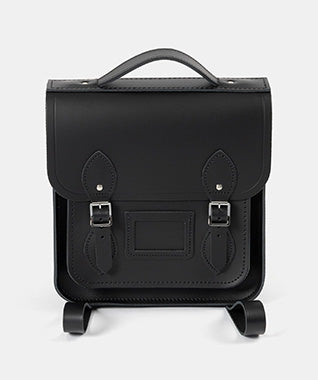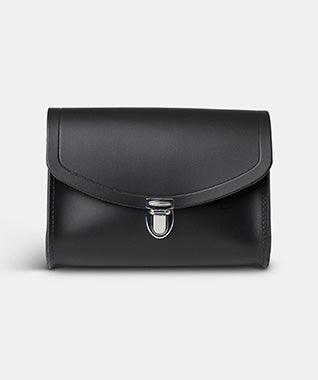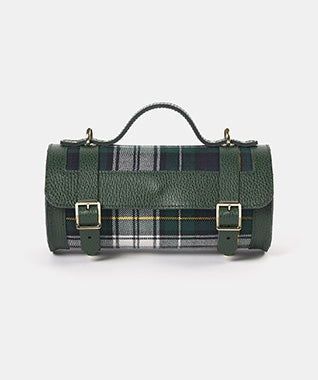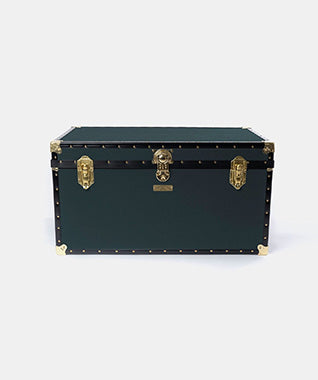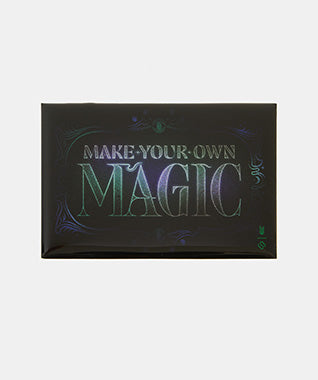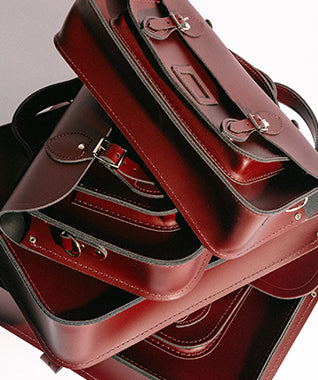The Journal
In Conversation with Mary Beard, Britain's Best-Known Classicist
When was the last time you thought about the Roman Empire? Well, according to the recent TikTok trend, it’s likely to have been just a day or two ago if you’re male. Why do the stories and myths of...
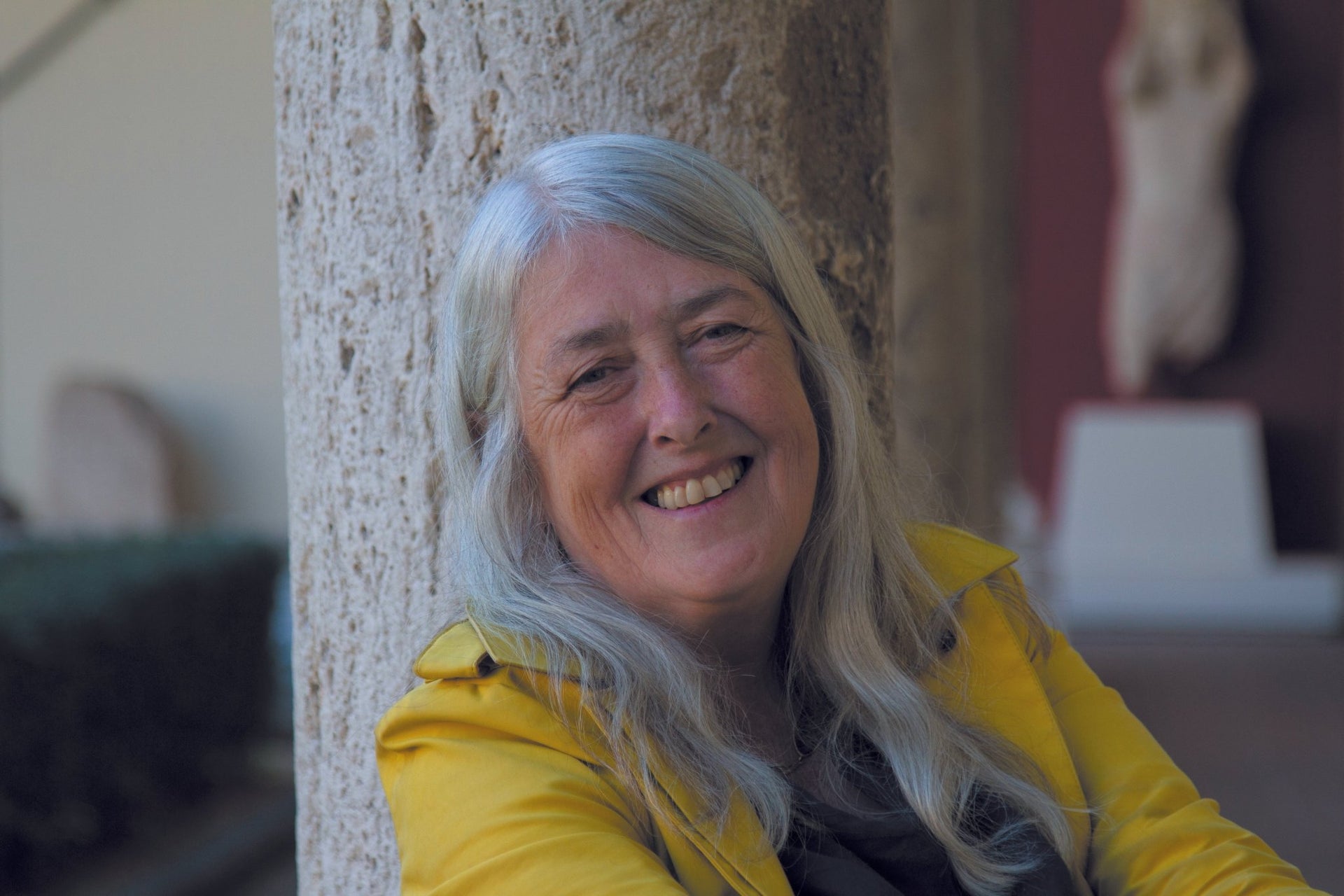
When was the last time you thought about the Roman Empire? Well, according to the recent TikTok trend, it’s likely to have been just a day or two ago if you’re male. Why do the stories and myths of such an ancient time linger in our thoughts 2000 years later?
The hilarious trend is just one of the things that Britain’s best-known classicist, Mary Beard, has shared her thoughts about on X, formerly known as Twitter, in the past couple of weeks. It comes at an interesting time for her. Witty and personable, the writer, TV historian and recently-retired professor has been turning classics into conversation for years, and as her new book, Emperor of Rome, launched yesterday, I imagine she’s thrilled to see the discussion unfolding online.
Between filming in Italy and preparing for her book tour, Beard sat down with me to introduce her newest work. From the myth of one man rule to the rewarding work of tracking down inscriptions, from the delights and horrors of reading her past work to the tale of a homicide by chamber pot (!), we are delighted to share all that Beard had to say about Emperor of Rome, and much more.

Getting to know the Emperor
‘In some ways, professional ancient historians have been a bit boring’, Mary Beard says when asked to summarise Emperor of Rome. ‘I want to reveal, for example, that you can go and visit the place where Nero actually ate!’.
Joining me via Zoom from her booklined office, Beard is, at this point, weeks away from launching her brand new exploration of what it means to be Roman Emperor. Her excitement to, in her words, release ‘some of the wonderful material that has been imprisoned in university seminars’, is palpable as she dives straight in, recounting her work in true storyteller fashion.
‘I’m interested in who the emperor was. What he did and what it felt like to be him; what he did every day and how the Romans looked at him. We take the phrase “Emperor of Rome” without a second thought’, remarks Beard. ‘We look at the statues we see in museums of emperors in military skirts and we immediately think “power”. I want to say, “Okay; those are important images of the Roman Emperor. But if we want to get a bit closer to the Roman Emperor to know what it was like to be face to face with him, can we do that?”’.
Beard’s new book shows us that we certainly can. Far from the step-by-step chronologies about Augustus and Caesar that we know so well, Emperor of Rome gets into the nitty gritty of what it was to interpret the role of Emperor, with each chapter rather unusually exploring a different aspect of the role, rather than a particular time period. ‘I took my cue from the Emperor Marcus Aurelius, who, at one stage, looked back at his predecessors and essentially said, “Same play, different cast”. What he saw is that, although we tend to see these blokes as very different - some goodies, some baddies, some perverts, some psychopaths - over at least the first 250-300 years of one man rule at Rome, they were actually much more similar to each other than they were different. So, if you put them together, you can actually get closer to what it was to be Roman.’
The Truth in Myth
As is her style, Beard’s book is as informative and scholarly as it is readable and conversational. Between entertaining anecdotes about deadly dinner parties and godlike miracles, Beard makes it clear that she is interested in digging deeper than the mythical image we have of Roman Emperors. ‘These emperors are often made to look very, very distinctive through very particular anecdotes, such as how Domitian spent his time skewering flies one by one, or how Elagabalus invited his guests to dinner and showered them with rose petals, but there were so many rose petals that they suffocated.’
‘I have no interest, really, in whether [they are] true or not (I think probably not). What I'm interested in is what it tells you about how you think about emperors, which is that you can't ever trust them. [They’re] making a more important point [that] power is as much about perception as it is about reality.’
Just as the image of the Emperor was moulded by others, so too was his every day rule. Beard is insistent on the fact that the ideas of autocracy and one man rule are flawed. ‘Nobody ever rules alone’, she states. ‘You can get surprisingly close to the slaves who did the washing up, to people who gave him advice, even to his masseur! You start to see that this is a system of power which is built on enormous amounts of labour by quite ordinary people, many of them enslaved. So you start to see a big question here: Who ran the Roman Empire? Was it the emperor himself, or was it the guy who wrote the letters on his behalf? Well, it was partly that…’
Decoding Inscriptions
Rich with inscriptions, references and photography from different Roman sites, the book reveals the surprising extent to which we can still access this ancient world. Incredibly, Beard tells us that contrary to what we may think, ‘there is more evidence about Ancient Rome than you could ever read in a lifetime, [but] it's actually quite hard to track some of these things down’.
The difficulty of digging up inscriptions isn’t something that fazes her. ‘It does look a bit effortless, and indeed, you try to make it look a bit effortless when you put it in the book, but it's one thing to find inscriptions in a German encyclopaedia, and another to find a photograph of the inscription itself. It can be frustrating and time consuming to find these places, but there is also a wonderful sense of trying to dig up the evidence; it's great!’
‘One of the things that I'm really pleased to have got a picture of is the tombstone of the Emperor Nero’s nurse, who actually buried him. What's truly exciting is that if you take the trouble and do the work, you can get that close… but you don’t have to do the work if you buy the book, because I’ve done the work for you!’

Why Read about Rome?
As I read the book, Beard is careful to examine the evidence she has for what it is - an insight into the lives of those who lived during the Roman Empire and their perceptions, rather than a direct lesson for us today. I ask her what we can take from these fragments of knowledge.
‘I would underline that I don't think we can take lessons from Rome. We’re not going to learn how to run the country by looking at what the Emperor Trajan did. However, I think that looking at Rome opens our eyes to the differences (and sometimes similarities) between Rome and ourselves, and allows us to think harder about how power works.‘
‘Ancient Rome was effectively a dictatorship, a one man rule. So when you wonder about how it worked - well, it didn't! Although we like to think that it was controlled by mass murder and judicial killings (and I’ll be the first to say that there was some of that), the more you look at how Roman power worked, the more you see that it was by people collaborating with it, people going along with it, people perhaps not approving of what was going on, but they didn't know any different.’
‘When we look back at Roman history, and we look at some of the extreme stories - true or not - about Roman emperors, and we’re tempted to think that we would have been a dissident, that we would have stood up against this. Well, no, we wouldn't, I’m afraid. We would do the same. it's not that we are completely complicit, it's just that we work with the system that we have’.
A Favourite Anecdote?
‘It's got to be my favourite legal case that the Emperor Augustus, the first proper emperor of Rome, adjudicated. He was very typical in many ways and set the template for how to be a Roman Emperor, and one of those things was that the Emperor had to be open to people, listen to them and read their begging letters.
The best one is just this wonderful case from the city of Knidos, now in modern Turkey, where there had been some really difficult civic unrest between different families, who had been brawling in the streets and so on. Ancient life in a town was tough.
In one of these brawls, some people were attacking the house of their enemies, and from an upper floor, a slave dropped a chamber pot - full of stuff, I imagine - onto the head of one of the brawlers, who was killed.
This is the start of a complicated legal case. Had the slave meant to tip just the contents, or did he really mean to throw the whole lot out? Was it a mistake, where he just dropped the chamber pot, or did he chuck it? And anyway, because he's enslaved, who's guilty? Was it his master?
Now, you could just imagine the difficulties of the people in this town. What's amazing is that it ends up on the Emperor's desk. He had to sit down and say, “Right, how am I going to judge this case?” - and he actually lets them off, concluding that it isn’t murder.
When you imagine the ruler of the Roman world, you imagine him fighting in his battle dress, not sitting with his pen trying to work out murder cases about falling chamber pots 2000 miles away. Yet that’s the image you need to have of a Roman Emperor.
That’s why writing a book about the Roman Emperor doesn't just mean writing a book about posh, powerful men. Through the eyes of the Emperor, you get a sight of the problems that ordinary people have’.

Life as Britain’s Best-Known Classicist
I’m keen to know more about the person behind the pen. Through books, TV and academia, Mary Beard has been uncovering classics to us. Does she ever reread or rewatch her older work - and does she every disagree with herself?
‘I retired recently, so I cleared up my room at Newnham College, and there I found things like my own undergraduate essays. It was terrible!’, she laughs.
‘You have one of two reactions, and there's no middle path. You pick up some of them, and you think “Blimey, that's really good! What a lot I knew!”, or, you pick them up and you go, “Oh, my God. How naive is that?” I think that stays the same through the whole of your past work. One day you think “oh, that's quite clever actually”, but another day, and it could be the same thing that you’re reading, it could be “God…did I think that?”. You always despise it, but I actually love it too’.
‘With telly, it's quite interesting. Again, sometimes I think it’s good, and something I think it's not good. But even when I think it’s crap, I do at least see myself. I recognise that that’s me. I wasn’t dressing up pretending to be someone else’.
Indeed, whether through her popular TLS column, A Don’s Life, or her very active X account, Mary Beard continues to share her findings with the world. Her upcoming Radio 4 programme will explore a series of very different perspectives from the Roman World.
‘We've got a series of six episodes coming up, as part of a programme which will be called something like Being Roman [...] we have one Roman Emperor in it - Marcus Aurelius - but we also have an ex-slave from Hadrian's Wall, a bureaucrat from Roman Egypt, a famous doctor, and even a child poet who died at 11, who is known only from his tombstone, which includes his poetry.’
Beard is aiming to show that the Roman World was much more diverse than we’re often made to believe, and so too are the ways of finding out about the different people who lived in it. ‘We're thinking about how you can access people from the ancient world and how you can glimpse them through all kinds of different evidence. We're dealing with men, women, people of colour, children and grownups. Some Romans are posh old white men, but an awful lot of them aren't, so let's look at the posh old white men and those that aren't’.
Just as our perceptions of the Roman world often revolve around a minority of people living at that time, the elitist reputation and accessibility of Classics today is also worthy of discussion. As Beard began her studies of classics at a time when being a woman in academia wasn’t necessarily the norm, I wanted to know if things were now changing.
‘You would be mad to say that classics hasn't underpinned some version of the British, European or American elite. Of course it has; it was used as a gateway to elite careers, elite universities, and so forth. However, there are two things to remember’, begins Beard. ‘One is there has always been a working class access to classics. There has always been some brilliant autodidacts that have said, “classics can be my subject, not just yours”, and in the last 50 years, over my career, an awful lot of the communal energy of classicists has gone into saying, “Look, don't believe the myth - it is a myth that is just for the posh.”’
‘The second thing about classics is that it was a long time ago, so nobody owns it. It's for everybody, and I think that's great as you can enjoy it whatever your background. [So] I think we're winning. There are more people studying classics now than there were a couple of decades ago. They watch the telly, read novels by Natalie Haynes or Madeline Miller, and that's all doing classics! Doing classics doesn't just mean learning Latin irregular verbs.’
So, if you’re feeling the urge to do classics (as I hope you are now!), let Emperor of Rome bring you into that world. Mary Beard’s book is a fascinating and refreshing look into the lives of Emperors - and those who made the role of Emperor possible - that will supplement classicists’ knowledge and turn non-classicists into history enthusiasts.
‘We think of the Romans as so remnant, yet, what's amazing is that even though they were around 2000 years ago, we still can get so close to them in some ways. In other ways, they remain very distant - but we can almost look them in the eye’.
–
Mary Beard’s Emperor of Rome is available now online at bookshop.org and at your local bookstores. Why not complete the look by carrying it in the very same Music Case as Mary?

Mary chose a Music Case in Navy and Tan, embossed with her initials, from our collections.
‘I have to say it is truly wonderful. I couldn't at all begin to claim that I am using it for carrying around my music, but it is brilliant for carrying around my laptop. I recommend it wholeheartedly to anyone who wants something to put their laptop in!
When I was a kid, I did a little bit of music, and I had a rather nasty plastic version of the same thing - so this is a Rolls Royce amongst Music Cases! I feel like I really upgraded’.
Mary Beard’s spotify song of choice is Sisters Are Doin’ It For Themselves. Listen along to this month’s playlist here.


